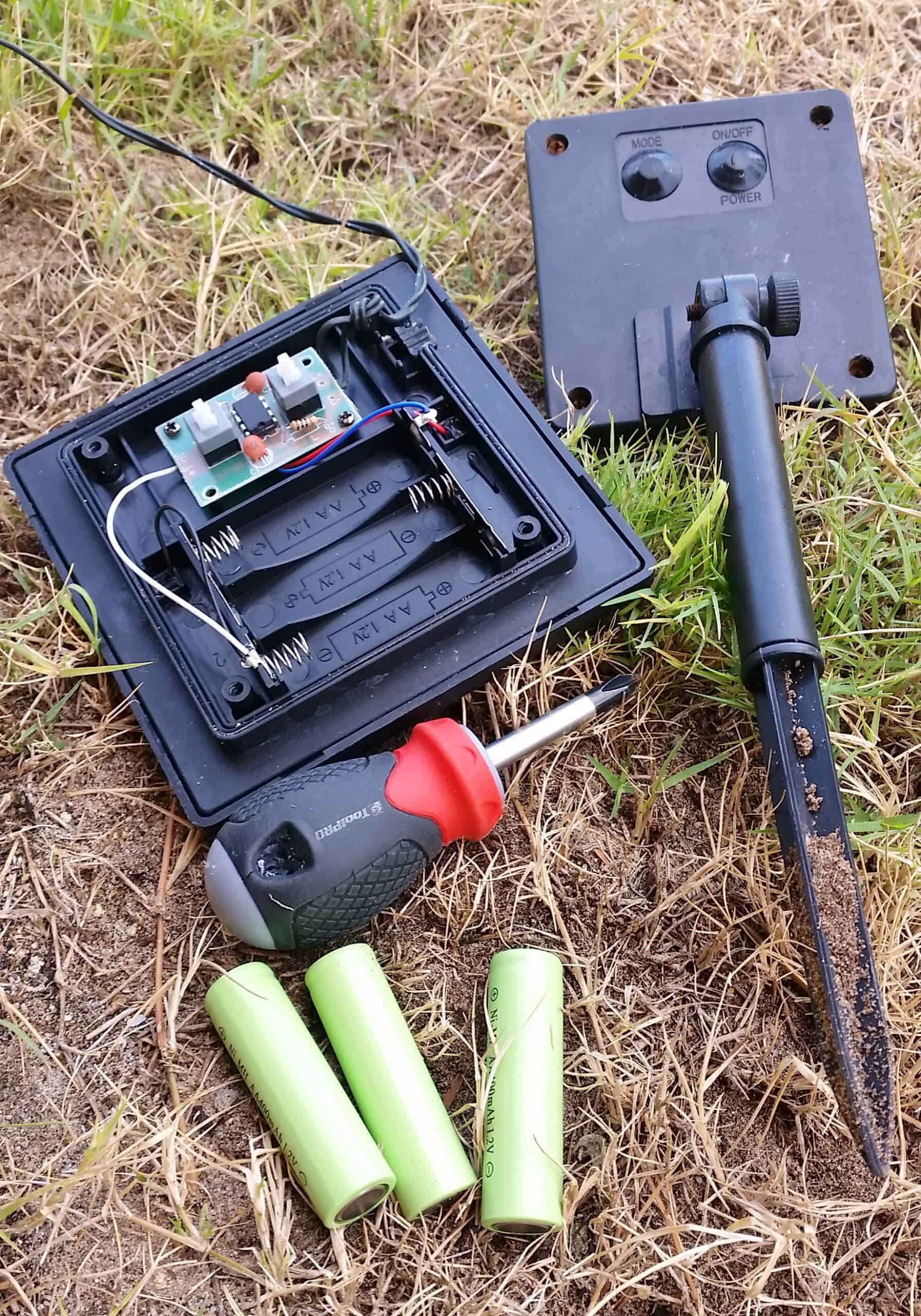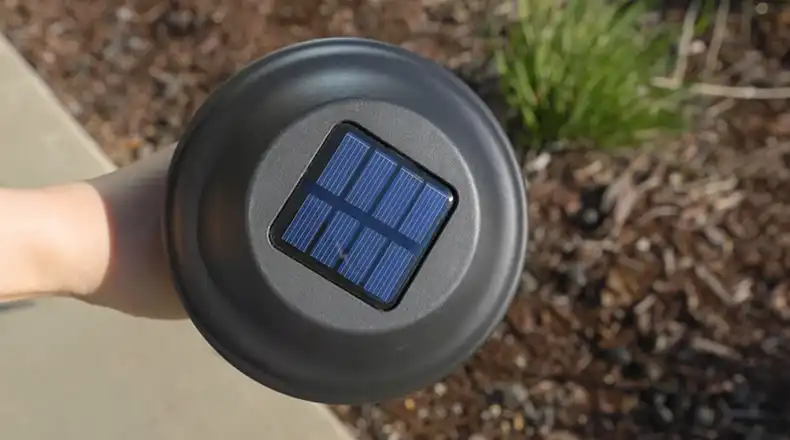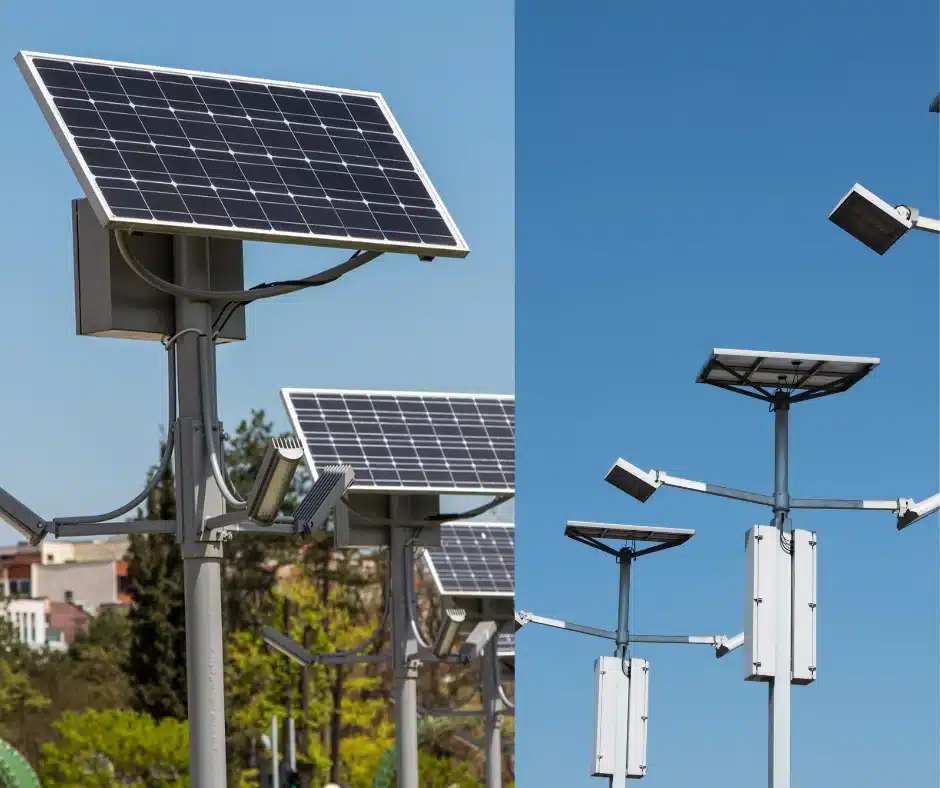Why are My Brand New Solar Lights Not Working, Your brand new solar lights might not be working due to insufficient sunlight or faulty installation. Check if the solar panels are clean and positioned correctly.
Solar lights are a popular choice for eco-friendly outdoor lighting. They harness sunlight during the day and illuminate your garden at night. Sometimes, new solar lights fail to work as expected. This can be frustrating, especially after investing in them.
Common issues include lack of adequate sunlight, dirt on the solar panels, or improper installation. Ensuring that the solar panels receive direct sunlight and are free from obstructions can solve the problem. Also, double-check the installation process to make sure everything is set up correctly. Regular maintenance ensures optimal performance for your solar lights.

Credit: solarlivingsavvy.com
Common Installation Mistakes
Installing solar lights can sometimes be tricky. Even with new solar lights, mistakes can happen. These errors can cause your lights to stop working. Let’s look at some common installation mistakes.
Improper Placement
Placement is crucial for solar lights. They need direct sunlight. If they are in the shade, they won’t charge. Make sure there are no trees or buildings blocking the sun. Place them where they get at least six hours of sunlight.
Loose Connections
Check all connections if your lights are not working. Loose wires can interrupt power flow. Ensure all wires are secure. Look at the battery connections as well. Tighten any loose screws or connectors. This can help restore your lights.

Credit: todayshomeowner.com
Battery Issues
Brand new solar lights not working can be frustrating. Often, the root cause lies with the batteries. This section explores common battery issues you may encounter.
Faulty Batteries
Sometimes, the batteries in your solar lights might be faulty. Faulty batteries can stop your lights from working. Even new batteries can sometimes be defective.
Check the voltage of the batteries using a multimeter. A healthy battery should show a good voltage. If not, replace the batteries with new ones.
| Battery Type | Voltage | Status |
|---|---|---|
| AA NiMH | 1.2V | Good |
| AA NiCd | 1.2V | Good |
| AA Alkaline | 1.5V | Bad |
Incorrect Battery Position
Incorrect battery position is another common issue. Ensure the batteries are placed correctly in the compartment. The plus and minus signs should align with the indicators.
- Open the battery compartment.
- Check the battery orientation.
- Align batteries according to the plus and minus signs.
Improper alignment can break the circuit, preventing the light from working. Double-check to avoid this simple mistake.
Solar Panel Obstructions
Solar lights can sometimes stop working due to solar panel obstructions. These obstructions can block sunlight from reaching the solar cells. This prevents the panels from charging the batteries effectively. Understanding these obstructions can help you fix your solar lights.
Debris On Panels
Debris like dust, leaves, and bird droppings can cover the panels. This blocks sunlight from reaching the solar cells. Cleaning the panels can solve this issue. Use a soft cloth and water to wipe off the debris. Avoid using harsh chemicals that can damage the panels.
| Type of Debris | Cleaning Method |
|---|---|
| Dust | Soft cloth and water |
| Leaves | Gently remove by hand |
| Bird Droppings | Soft cloth and water |
Shade Coverage
Shade from trees, buildings, or other objects can block sunlight. This can reduce the efficiency of the solar panels. Check the position of your solar lights during the day. Ensure they get direct sunlight for most of the day.
- Trim tree branches that cast shadows.
- Move solar lights to a spot with more sunlight.
- Avoid placing lights near tall structures.
By addressing these obstructions, you can ensure your solar lights work efficiently. Keeping the panels clean and in direct sunlight is key.

Credit: www.itekenergy.com
Internal Wiring Problems
Internal wiring problems are common in new solar lights. These issues can cause them to malfunction. Proper wiring is essential for solar lights to work efficiently. If your brand new solar lights are not working, internal wiring problems might be the culprit. Let’s explore some potential issues:
Damaged Wires
Damaged wires can disrupt the electrical flow in your solar lights. This can happen during manufacturing or shipping. Inspect the wires carefully for any visible damage. Look for cuts, frays, or exposed sections.
- Check for visible cuts: Cuts can break the circuit.
- Inspect for frays: Frayed wires may cause short circuits.
- Look for exposed sections: Exposed wires can lead to electrical hazards.
If you find any damaged wires, consider replacing them. Use electrical tape to cover minor damages. For severe damage, contact the manufacturer for replacement parts.
Defective Circuitry
Defective circuitry can prevent your solar lights from working. Poor manufacturing processes often cause this issue. Circuit boards are crucial for the proper function of solar lights. Check the circuit board for signs of defects.
| Defect Type | Description | Solution |
|---|---|---|
| Burnt Components | Signs of burning or melting on the circuit board. | Replace the circuit board. |
| Loose Connections | Wires not securely attached to the circuit board. | Resolder or reattach the wires. |
| Corrosion | Presence of rust or corrosion on the circuit components. | Clean the corrosion or replace affected parts. |
Defective circuitry often requires professional repair. If you are not confident, seek help from an expert. This ensures your solar lights are fixed correctly and safely.
Sensor Malfunctions
Your brand new solar lights are not working? Sensor malfunctions might be the cause. Sensors play a crucial role in solar lights. They detect motion and light levels to control the lights. Any malfunction can render your solar lights useless.
Faulty Motion Sensors
Motion sensors detect movement to turn on the light. Faulty motion sensors can fail to trigger the light. Here are some common issues:
- Blocked Sensor: Dirt or debris can block the sensor.
- Incorrect Placement: The sensor might be in a poor spot.
- Low Sensitivity: Adjust the sensor’s sensitivity settings.
Light Sensors Issues
Light sensors detect daylight to turn off the light. Light sensor issues can keep the lights off at night. Here are some typical problems:
- Obstructed Sensor: Ensure no objects block the sensor.
- Calibration Problems: Recalibrate the sensor if needed.
- Damaged Sensor: Replace the sensor if it’s broken.
Sensor malfunctions are common in solar lights. Regular maintenance can prevent these issues. Check your sensors often to keep your lights working.
Weather Impact
Your brand new solar lights might not be working due to weather conditions. Weather can greatly affect the performance of solar lights. Understanding these impacts can help you troubleshoot and maintain your lights better.
Extreme Temperatures
Extreme temperatures can affect your solar lights. High temperatures can cause the battery to overheat. This can damage the battery and reduce its lifespan. On the other hand, very low temperatures can slow down the battery’s charge rate.
Here’s a quick look at how extreme temperatures can impact solar lights:
| Temperature | Effect on Solar Lights |
|---|---|
| High | Battery overheats, reduced lifespan |
| Low | Battery charges slowly |
Water Damage
Water can seep into the solar light casing. This can damage internal components. Heavy rain or snow can cause this. Ensuring that your lights are waterproof can help prevent this issue.
Here are some tips to protect your solar lights from water damage:
- Check for waterproof ratings
- Place lights in sheltered locations
- Regularly inspect for cracks or damage
Always ensure your solar lights are built for outdoor conditions.
Switch Settings
Understanding the switch settings on your brand new solar lights is crucial. Incorrect settings can cause them not to work. Below, we explore two common issues: the power switch and mode selection.
Power Switch Off
The power switch on your solar lights might be off. Most solar lights have a switch to conserve energy during storage. Check if the switch is in the ‘off’ position.
- Locate the power switch on your solar light.
- Switch it to the ‘on’ position.
- Place the solar light in direct sunlight for charging.
This simple step can often resolve the issue.
Mode Selection
Many solar lights come with different lighting modes. These modes can affect how and when the lights operate.
- Check the mode selector switch.
- Ensure it is set to the desired mode.
- Common modes include ‘auto’, ‘on’, and ‘off’.
If the light is set to ‘off’, it will not turn on. Set it to ‘auto’ for dusk-to-dawn operation.
| Mode | Function |
|---|---|
| Auto | Turns on at dusk, off at dawn |
| On | Stays on continuously |
| Off | Remains off |
Proper mode selection ensures your solar lights function as expected.
Incorrect Assembly
Have you recently installed solar lights but found they are not working? One common reason for this issue is incorrect assembly. This can lead to various problems, including the lights not turning on or not charging properly. Let’s delve into the details of incorrect assembly and identify what might have gone wrong.
Assembly Errors
Incorrect assembly is a frequent cause of malfunctioning solar lights. Here are some common assembly errors:
- Wrong alignment of solar panels.
- Improper connection of wires and connectors.
- Incorrect placement of the solar panel.
Ensure all parts are correctly aligned and connected. Check the manual for detailed instructions.
Missing Components
Sometimes, missing components can cause your solar lights to malfunction. Here are a few things to check:
| Component | Importance |
|---|---|
| Screws | Secure the lights in place |
| Connectors | Ensure proper electrical connection |
| Solar Panel | Charge the battery |
Double-check the box for all required parts. Missing components can prevent the lights from functioning.
Manufacturer Defects
Sometimes, brand new solar lights might not work due to manufacturer defects. These issues can arise during the production process. Let’s explore the common types of manufacturer defects.
Production Faults
Production faults can be a major reason for solar lights not working. These faults can occur during the assembly line.
- Wiring Issues: Incorrect wiring can prevent the lights from working.
- Battery Problems: Faulty batteries can fail to store solar energy.
- Defective Solar Panels: Damaged panels might not capture sunlight effectively.
Production faults usually become noticeable when you first use the lights. Check for any visible issues or unusual behavior.
Warranty Claims
Many solar lights come with a warranty. A warranty ensures that you get a replacement or repair for defective products.
Here’s how to handle warranty claims:
- Read the Warranty: Understand what is covered.
- Contact the Manufacturer: Reach out to customer service.
- Provide Details: Share purchase proof and defect description.
Keep all purchase receipts and warranty cards safe. They are essential for a smooth warranty claim process.
Poor Quality Lights
Are your brand new solar lights not working? The problem might be poor quality lights. Low-quality lights often lead to disappointment. They fail to perform as expected. Understanding why can help you avoid the same mistake.
Low-cost Materials
Low-cost materials are often used in cheap solar lights. These materials are not durable. They can break easily. Water can seep into the light casing. This damages the internal components. The solar panels might not be efficient. They may not store enough energy.
| High-Quality Lights | Poor Quality Lights |
|---|---|
| Durable materials | Cheap materials |
| Efficient solar panels | Low-efficiency panels |
| Long-lasting batteries | Weak batteries |
Short Lifespan
Cheap solar lights have a short lifespan. They stop working after a short time. This is frustrating and costly. Good lights can last for years. Poor quality ones might last only a few months.
- Weak batteries drain quickly.
- LEDs might burn out fast.
- Plastic components can crack.
A short lifespan means you need to replace them often. Spending a bit more on quality saves money in the long run.
Inadequate Sunlight Exposure
One common reason for brand new solar lights not working is inadequate sunlight exposure. Solar lights rely on sunlight to charge their batteries. Without enough sunlight, they cannot function properly. Understanding the factors that affect sunlight exposure can help resolve this issue.
Insufficient Sun Hours
Your solar lights need direct sunlight to charge. They typically require 6-8 hours of sunlight daily. If your lights get less sun, they won’t charge fully.
- Shaded Areas: Trees, buildings, or other structures can block sunlight.
- Cloudy Weather: Overcast days reduce the amount of sunlight.
- Incorrect Placement: Ensure your lights are in a spot with maximum sunlight.
Consider moving the lights to a sunnier location. This simple step can often solve the problem.
Seasonal Changes
Seasonal changes affect the amount of sunlight your solar lights receive. During winter, days are shorter, and the sun is lower in the sky.
Below is a table explaining how seasons impact sunlight exposure:
| Season | Sunlight Hours | Effect on Solar Lights |
|---|---|---|
| Spring | 10-12 hours | Good charging, lights work well |
| Summer | 12-14 hours | Optimal charging, lights perform best |
| Fall | 8-10 hours | Reduced charging, lights may dim |
| Winter | 6-8 hours | Poor charging, lights may not work |
In winter, you might need to adjust the angle of your lights. Point them more directly at the sun to maximize exposure.
Maintenance Tips
Are your brand-new solar lights failing to illuminate your garden? Proper maintenance is crucial for the optimal performance of solar lights. Below are some essential maintenance tips to help keep your solar lights shining bright.
Regular Cleaning
Regular cleaning is vital for solar lights. Dirt and debris can block sunlight. Use a soft cloth to wipe the solar panel. Ensure there is no dust or grime. Clean the panel once a week. This will ensure maximum sunlight absorption.
Check for bird droppings too. They can be a major hindrance. If necessary, use mild soapy water. Rinse with clean water and dry thoroughly.
Routine Inspections
Conduct routine inspections to ensure all parts are functioning. Check the solar panels and the light bulbs. Look for any cracks or damages. Replace any faulty parts immediately.
Inspect the batteries regularly. Batteries can lose efficiency over time. Replace them if they are old or damaged. Ensure the wiring is intact and free from corrosion.
Here are some additional tips:
- Ensure the lights are placed in direct sunlight.
- Remove any obstructions around the solar panels.
- Avoid placing lights under trees or shaded areas.
- Use a UV-protective spray to prolong the life of the panels.
Follow these simple maintenance tips to keep your solar lights working efficiently.
Frequently Asked Questions
Why Won’t My New Solar Lights Work?
Your new solar lights might not work due to insufficient sunlight, faulty batteries, or dirty solar panels. Ensure they receive adequate sun.
How Long Does It Take For New Solar Lights To Work?
New solar lights typically start working after 6-8 hours of direct sunlight. Ensure they receive full sun exposure.
How Do You Charge Solar Lights For The First Time?
Place the solar lights in direct sunlight for 8-10 hours. Ensure the panels are clean and unobstructed. Turn them off before charging to maximize battery life.
How Do You Activate Outdoor Solar Lights?
To activate outdoor solar lights, remove the protective tab, place them in direct sunlight, and turn the switch on.
Why Are My Solar Lights Not Turning On?
Your solar lights may not be turning on due to insufficient sunlight, dirty panels, or a faulty battery.
How Long Do Solar Lights Take To Charge?
Solar lights typically take 6-8 hours of direct sunlight to fully charge.
Can Cloudy Weather Affect Solar Lights?
Yes, cloudy weather can reduce the efficiency of solar lights by limiting sunlight exposure.
What Should I Do If Solar Lights Are Dim?
Check for dirty panels, weak batteries, or poor sunlight exposure and clean or replace as necessary.
Do Solar Lights Need Direct Sunlight?
Yes, solar lights need direct sunlight to charge effectively and work properly.
Why Are My Solar Lights Flickering?
Flickering can be caused by dirty solar panels, weak batteries, or a faulty connection.
Conclusion
Ensuring your brand-new solar lights work involves checking installation, sunlight exposure, and clean panels. Regular maintenance is key. Troubleshoot common issues to enjoy your lights fully. Follow these tips, and your solar lights should shine brightly, enhancing your outdoor space.
Remember, a little attention goes a long way in maintaining performance.



